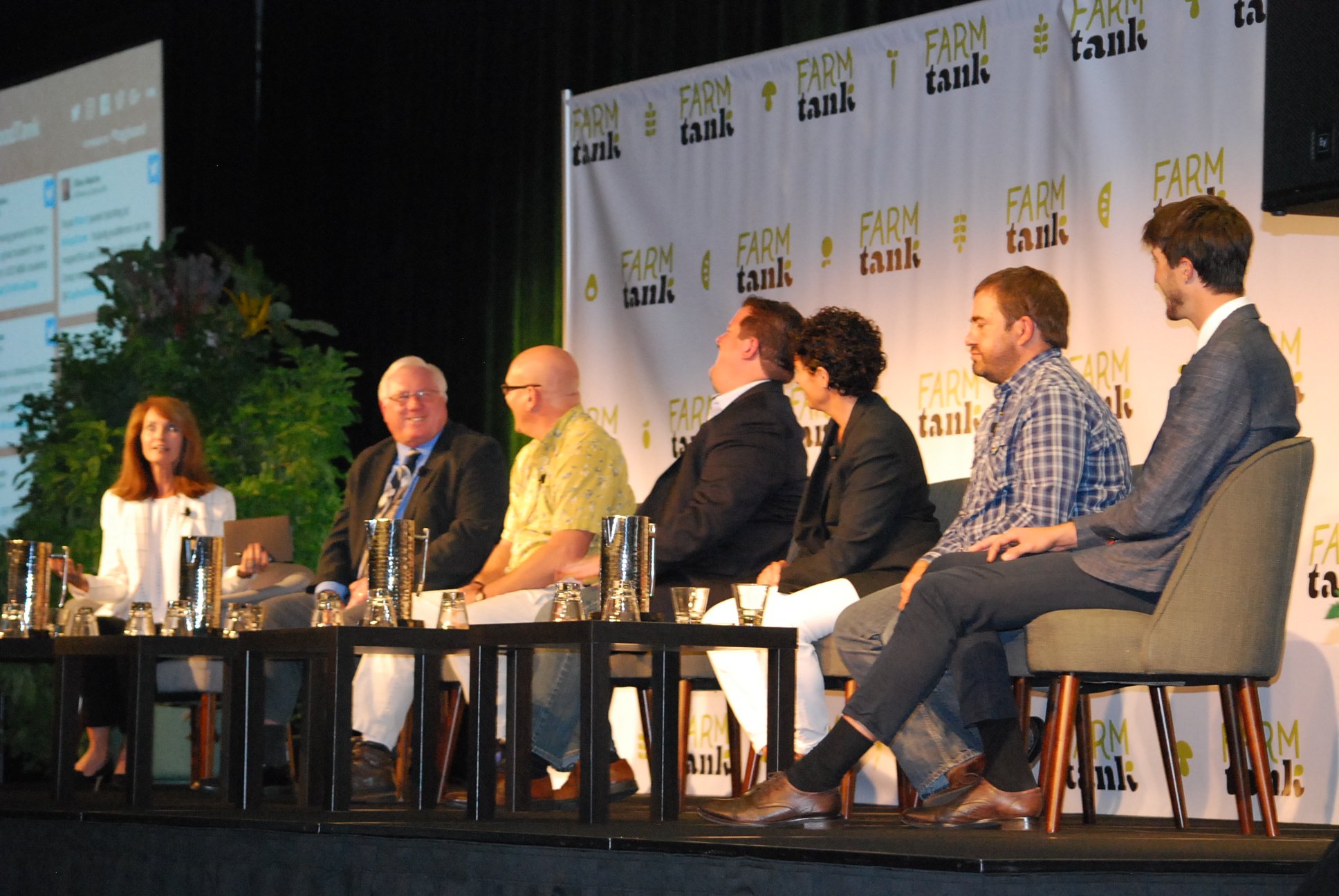A Sustainability Dialogue: Food Transparency at Farm Tank, Sacramento 2016
Nikkiko Masumoto on food

This past Thursday and Friday, my girlfriend @anwenbaumeister and I went to a sustainable food and agriculture conference in Sacramento called Farm Tank. The conference brought in a variety of speakers from around the country, ranging from professors, to scientists, to business owners, to regular farmers. There were speakers from a wide variety of interests (as in there were representatives from small organic farms on the same stage as representatives from Monsanto and Bayer.) The entire day Thursday was spent in a conference room holding a variety of speaker panels and discussions on a variety of topics, including Food Transparency, Food Tech, Infrastructure, Food Business, and Sustainable Protein. I'm going to write a series of posts over the next couple of days discussing some of the different things I learned throughout the conference, but today I want to talk about food transparency.

(Source)
I mean a variety of things when I say food transparency.
- First, and perhaps foremost, I mean that every consumer should know exactly what they're eating. This could ultimately mean things like clear labelling, ingredient lists, and appropriate branding. Basically, the consumer should have all of the information about what products are, what processes they have undergone, and where they come from.
- Second, it means that it should be clear what company is selling/providing that food. For a large portion of the agriculture and food business (as in other parts of the economy) the name of the business on the label frequently does not tell you much about who is actually running the show. From parent corporations to large corporate mergers, and ultimately to (often) intentional misdirection of consumers, it is very difficult for the average consumer to get a real idea of who owns/runs what. Think about the way large car companies have a variety of brands. Fiat, the parent company, owns Alfa Romeo, Chrysler, Dodge, Ferrari, Jeep, Lancia, Maserati, Ram, and SRT. General Motors, the parent company, also owns Buick, Cadillac, Chevrolet, and GMC. This is because certain brands have certain reputations, and creating new brands creates new opportunities...despite the fact that they are all ultimately owned by the same people. The same happens in the food and agriculture industries.

(Source) - The conditions of workers of these companies are frequently almost impossible to find out without going to see them in person. This happens due to deliberate cover-ups and forced silencing of workers under threat of being fired, as well as due to middle-men not reporting the problems of their workers to higher ups. Ultimately, for multiple reasons, often people with the power to change worker conditions do not have the right information to do so.
The panel on Food Transparency at Farm Tank was discussed by seven panelists.
- Nikkiko Masumoto, a farmer from Masumoto Family Farm
- Thomas Reynolds, the Vice President of Programs, Partnerships, and Learning at CARE International
- Dave Kranz, Communications and News Division Manager at the California Farm Bureau Federation
- Hannah Freeman, Director of Produce and Floral for Fair Trade USA
- Marcia Ishii-Eiteman, a Senior Scientist at the Pesticide Action Network of North America
- Bruce Goldstein, the President of Farmworker Justice
- Eric Holt-Gimenez, the Executive Director of Food First

Main Issues
The panelists came from a variety of backgrounds and schools of thought, but certain ideas and concepts kept on appearing.
- Many of the panelists agreed that independent research related to food and agriculture had been ground to halt in recent decades, citing the insidious presence of corporate funding for universities, the systematic defunding (as pushed by Agro lobbies) of public research institutions, and the infiltration of executives and other members of big agriculture into the boards of directors that ultimately allocate grant and research funding. This idea was particularly brought forth by Marcia Ishii-Eiteman, who further asserted that governmental regulatory bodies like the EPA frequently only looked at corporation funded studies. I don't think it would be a long stretch to assert that corporate money might have a biasing influence on scientific studies.
- Further, corporate lobbies have spent billions of dollars to influence government bodies in the past decades, with Ishii-Eiteman further claiming that corporate lobbies had spent over $500 million to influence government decisions in the past four years. In that same time period, Monsanto alone spent over $300 million on pro-big Agriculture propaganda.

(Source) - The issues do not stay at the national level either. We are reaching a stage of corporatism where states are no longer the sole bodies governing the world. Large corporations have enormous amounts of power over state decisions, as made particularly evident in international free trade agreements. According to Eric Holt-Gimenez, the rules of international free trade agreements are set in large part by corporate powers, which gives them enormous legal power to change state economic systems to their own liking.
Solutions
But all is not doom and gloom. While many of these issues unfold on the stage in a large-scale way, they ultimately grow from a systemic international disconnection from the food that we grow and eat. To many people, fruits and vegetables come from the supermarket, not from the land and the animals that live upon it. There is a lack of respect for those who grow our food, as well as a lack of trust between them and those who sell it. The fundamental root of our institutionalized lack of food transparency is that lack of trust and respect, and the disconnection between land and food. As Nikkiko Masumoto said during the conference, "we need to create a shared language" about food. If we can recreate humanity's connection with food and the land, it will not only help to create a more sustainable food system, but also to fight environmental injustice, racism, classism, and poverty.

(Source)
This is a hugely important topic and a nice summary of the event you attended. It is great that so many players from different parts of this field were represented.
Thanks! It was a really interesting panel discussion, especially since different panel members really highlighted different underlying issues depending on their particular experiences.
Sustainability is the key to our future I agree. So having the ability to know what is in your food. At a local level America is very concerned and interested in transparency but then I hear about "The Dark Act". Scary.
Good post. got follower.
I recently went to huge Algae Innovation summit in China which had a huge focus on sustainability and carbon capture. I'm working on an article now. I think you will like it.
Thanks! I'll be sure to check your post out when it comes out. I'm unfamiliar with "The Dark Act." What is it?
the Dark Act is the thing Obama signed this past summer making it incredibly difficult to know what is in American food. It went against the majority of the people wishes.
Maybe you know it by a different name. It was international news all summer.
http://www.huffingtonpost.com/entry/obama-signs-dark-act-to-invalidate-vermonts-landmark_us_57a644c7e4b0ccb023727b2d
Amazingly enough, this flew straight over my head. Thanks for filling me in.
Cool
Steem On!
We have been eating food laced with antibiotics, pesticide and which have also been genetically modified. Thumbs up for food transparency
The average consumer only looks at the brand. Not what happens in the supply chain to bring the product to the table. What a great initiative to raise awareness of the conditions that the supply chain workers face.